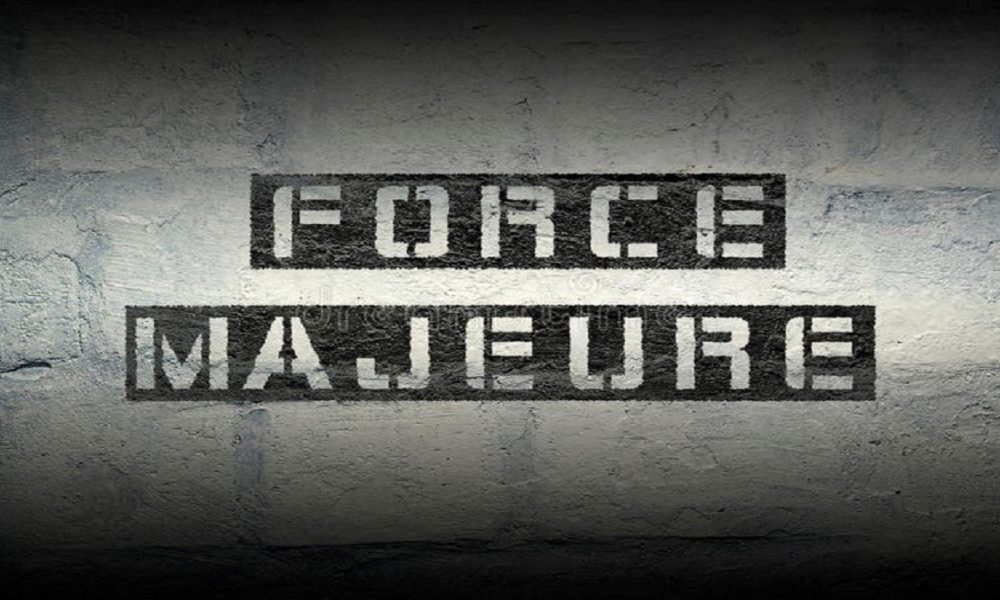In our previous column, we discussed the concept of force majeure, its interpretation and how contracting parties may invoke such clauses in their contracts to tide over the damaging consequences of contractual non-performance caused by the Covid-19 pandemic. However, one may note that the contractual mechanism of force majeure cannot come to the rescue of contracting parties if such a clause is absent from the contracts. In this piece, we will cover the strategy and its consequences when there is no force majeure clause in the contract, and the recent judicial trend of Indian courts while interpreting contracts in the testing times of Covid-19 outbreak.
Change in Law clauses
Apart from a force majeure clause, parties may consider whether there is a change-inlaw provision in the contract and the kind of remedies that may be availed by an affected party. Such clauses may, generally, provide for adjustment in price and extension/adjustment in time for performance without a risk of termination of a contract if a governmental order or change in applicable law makes contract performance delayed or impracticable or impossible. As discussed above, various national governments have taken drastic measures to curb the menace of Covid-19 outbreak and issued several legislative and executive orders and/or directions, which may have a direct or indirect impact on performance of commercial contracts. In India, various lockdown notifications issued by the Government are under the Epidemic Diseases Act, 1897 and the Disaster Management Act, 2005, which then take the colour of ‘law’. Further, the Disaster Management Act, 2005 under Section 72 states that the provisions of this act will have overriding effect on other laws. Therefore, the resulting disruption in workforce and materials which are “directly” impacted due to the notifications passed under the above laws, may be interpreted as a change in law event, if the contract provides for a change in law provision and provide for compensation for increased costs due to a change in law or an excuse for performance if a change in law prevents performance. In this context, parties must closely consider as to what will constitute a change in law under the language provided in the contract. Such a clause could be particularly helpful to critical infrastructure businesses and international companies facing increased costs for labour and workforce changes or moving personnel to worksites.
What if there is no Force Majeure or Change in Law clauses: Frustration of contract?
A force majeure or change in law clauses will not be implied into a contract as a matter of law. Therefore, in the absence of an express clause to that effect, a party could try to claim that the contract has been frustrated. The doctrine of frustration provides that a valid and subsisting contract, which has not yet been fully performed may be discharged where such circumstances arise (1) which were not envisaged at the time the contract was entered into, and (2) which render the contract impossible, illegal and/ or impracticable to perform or which transform a party’s obligations such that they are radically/fundamentally different to those which the parties originally agreed to perform. However, it may be borne in mind that the doctrine of frustration is applied narrowly and requires a very high threshold to be met before it can be established. As such, courts are loathe to declare a contract frustrated and require evidence with high probative value to demonstrate the same. Under the Indian Contract Act, 1872 (the “Contract Act”), if a contract becomes impossible or impracticable to perform, parties can avoid contractual obligations either (i) on grounds of contingent supervening events under Section 32 of the Contract Act read with the force majeure clause in the contract, or (ii) on grounds of frustration of the contract under Section 56 of the Contract Act. It is pertinent to note that these two remedies are mutually exclusive and where the contract has expressly (or impliedly) specified a force majeure event, parties cannot rely on such a force majeure event to invoke the doctrine of frustration under the Contract Act and consequently avoid the contract as a whole. The Supreme Court of India in Energy Watchdog v. Central Electricity Regulatory Commission and Anr. 2017 (4) SCALE 580, held that “In so far as a force majeure event occurs de hors the contract, it is dealt with by a rule of positive law under section 56 of the Contract Act 1872. The performance of an act as encompassed under the agreement may not be literally impossible, but it may be impracticable and useless from the point of view of the object and purpose of the parties and therefore, cannot be considered as a force majeure event.” Thus, for proving that a contract has been frustrated by the Covid-19 pandemic, an affected party may need to demonstrate that, not only has there been a supervening impossibility/illegality leading to change in the fundamental objective of the contract as a result of the outbreak, but also that there are no other alternative means of performing the same. Courts in India have time and again held that solely because certain obligations have become onerous or financially burdensome, the contract does not get frustrated. Further, for contracts that have been executed after the outbreak of Covid-19, it may be difficult to prove that the same had not been contemplated by the parties. While the Covid-19 outbreak is affecting a wide array of industries and services around the world, the resultant economic slowdown may not necessarily be considered as a valid event causing frustration of the contract. If a contract does not contain a provision on force majeure, a party invoking the doctrine of frustration must be mindful that when taking a plea under Section 56 of the Contract Act, the contract is automatically discharged. Hence, parties must bear in mind that there is no flexibility of keeping a contract alive or renegotiating the same, as available while invoking a force majeure clause. However, parties can recover amounts paid under the contract before it was frustrated less the expenses incurred by the counterparty for the performance of its obligation. This is expressly enacted under Section 65 of the Contract Act. However, this is not an absolute rule and the extent of restitution will depend on several factors, such as expenses incurred by the non-affected party and the level of performance and consequent payment based on milestones provided under the contract.
What to do when Frustration/Force Majeure claim is made?
As enumerated above, a party must take the following steps when a claim of frustration and/or force majeure is made against it: Firstly, check whether the contract has a force majeure clause that could cover Covid-19 or consequent lockdown notifications, as a trigger event. Secondly, check whether there is a causal link between the force majeure/ frustrating event and nonperformance of contractual obligation by the affected party. Thirdly, write to the counterparty and request (i) evidence of the circumstances it relies on, (ii) a full explanation of why its performance is now physically/legally impossible, (iii) evidence of steps it is taking to mitigate and (iv) regular updates as to its efforts to resume performance. Lastly, if satisfied with the response, consider entering in a written variation to the contract to suit the needs and commercial needs of the parties. If not and considering that the situation has impacted mostly everyone across the glove, parties should explore a possibility of an amicable settlement. In case nothing works, one may consider invoking the dispute resolution mechanism under the contract. It must be noted that the Contract Act does not contain any provision for suspension or partial-frustration of the contract. Therefore, if a party chooses to invoke frustration of contract against the other party, the only relief, in terms of the law, is for the whole contract to be terminated/ frustrated. Most recently, the Bombay High Court in the matter of Standard Retail Pvt. Ltd. v. M/s G.S. Global Corp & Ors., Commercial Arbitration Petition (L) No. 404 of 2020, gives an insight into the approach that the courts in India may adopt while dealing with the prevailing situation of Covid-19 outbreak. In this case, the buyer of imported steel sought to restrain the seller from encashing the former’s letter of credit on the ground that their contract had been terminated due to frustration, impossibility and impracticability in terms of Section 56 of the Contract Act due to lockdown imposed in the wake of Covid-19 outbreak. The Court, instead of allowing the reason of lockdown to be an overarching reason for claiming frustration of the contract, examined the nature of the contract in question i.e. a letter of credit and went on to hold that a bank guarantee is a separate contract all-together and is indifferent to the conditions prevailing between the buyer and the seller. Thus, alleged frustration of one contract would not automatically lead to frustration of another contract. Further, in rejecting the relief sought by the buyer, the Court held that commercial hardship could not be cited as a reason to excuse performance to the disadvantage of the seller. This decision of the Court reaffirms the view that courts would examine the plea of frustration, or even force majeure, on a case-tocase basis depending on the nature of contract and the circumstances between the parties governing it. In current times, we would like to strongly suggest that parties undertake a detailed contract review at their organizations to be prepared for emerging scenarios when request for invocation of Force Majeure or waiver of obligation is made by the counterparty. Having said that, mutual support and amicable settlement ought to be the flavour of the season! Sameer Jain, Managing Partner, and Suvigya Awasthy, Associate Partner, PSL Advocates & Solicitors























